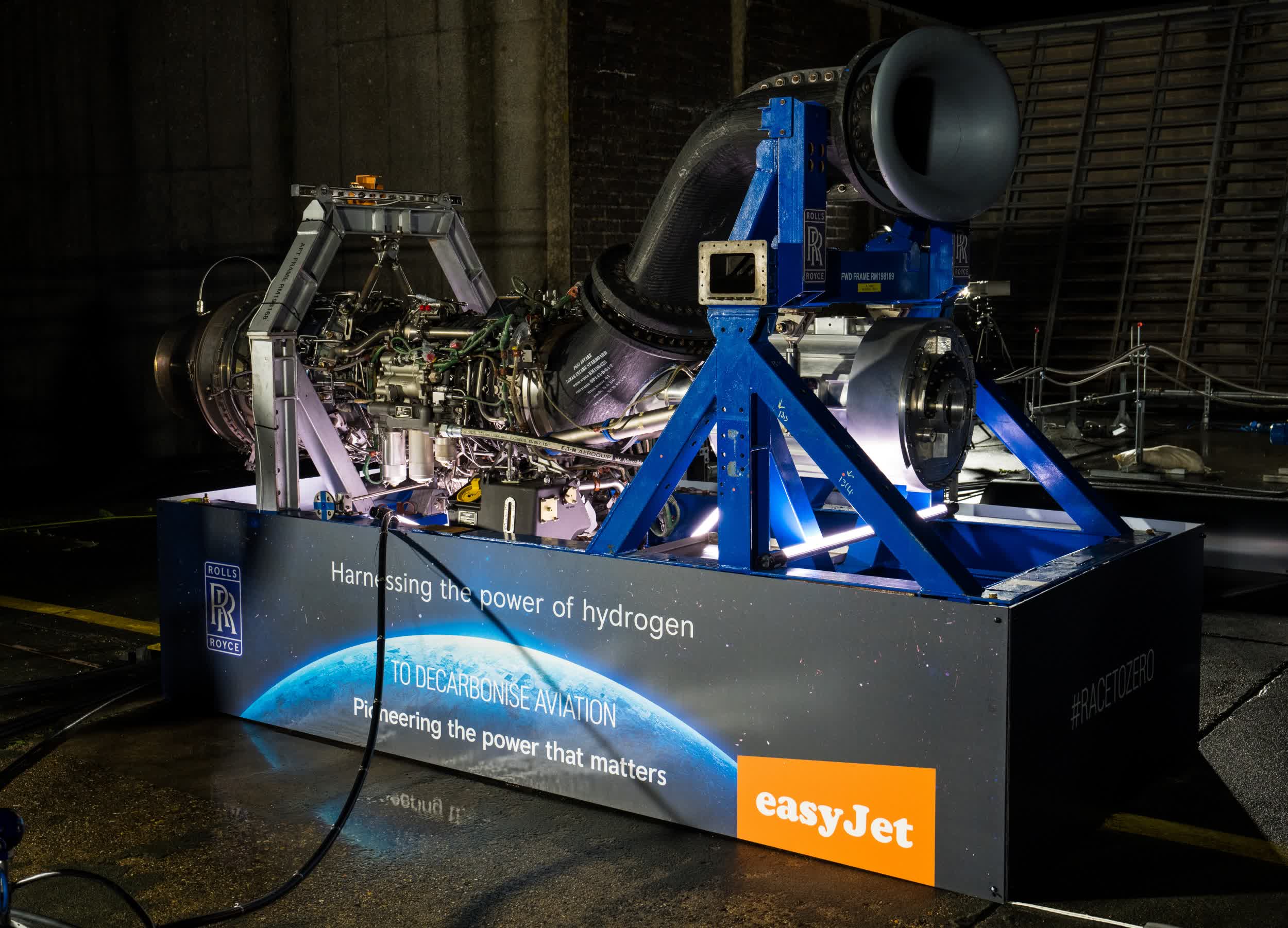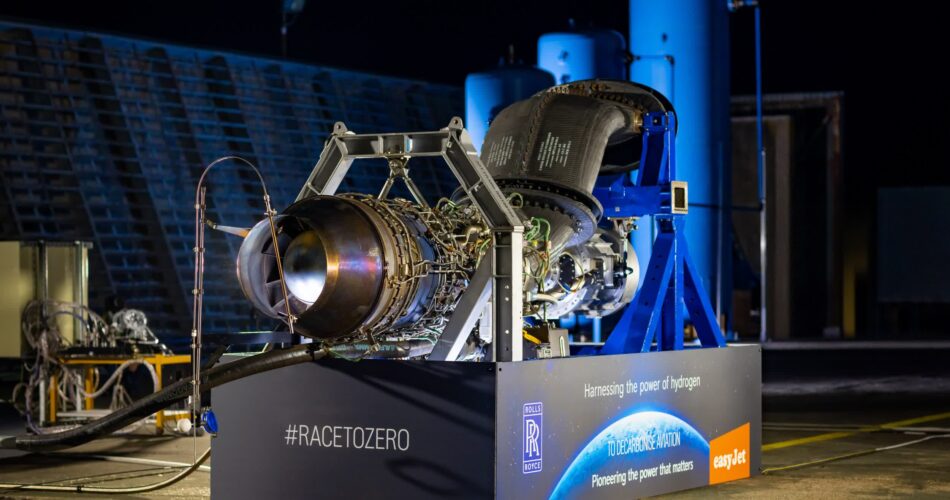What just happened? Rolls-Royce has become the first to demonstrate a hydrogen-powered aircraft engine in what marks a new aviation milestone. Rolls-Royce Holdings plc and airline partner easyJet conducted the ground test on a converted Rolls-Royce AE 2100-A regional aircraft engine at MoD Boscombe Down, a military testing site in the UK.
Hydrogen for the test was generated using wind and tidal power from the Orkney Islands of Scotland and was supplied by EMEC (European Marine Energy Centre).
Rolls-Royce partnered with easyJet in July to develop hydrogen combustion engine technology for aircraft. At the time, the duo said they hoped to put hydrogen-powered craft in the air by the mid-2030s and achieve net-zero carbon emissions by 2050.
Secretary of State for Business, Energy and Industrial Strategy, Grant Shapps, said the UK is leading the global shift to guilt-free flying, noting that the test is an exciting demonstration of how innovation can transform how we live our lives. It is “a prime example of how we can work together to make aviation cleaner while driving jobs across the country,” Shapps added.

In related news, Airbus recently announced it is developing a hydrogen-powered fuel cell engine. The company said it identified hydrogen as one of the most promising alternatives to power a zero-emission aircraft because it emits no carbon dioxide when generated from renewable energy.
Airbus said it will start ground and flight testing of the fuel cell engine architecture near the middle of the decade using the A380 MSN 1 aircraft, which will be modified to carry liquid hydrogen tanks and their associated distribution systems. Airbus sees hydrogen as a potential solution for zero-emission aircraft it plans to put into service by 2035.
Not everyone is so quick to jump on the hydrogen bandwagon. Earlier this year, Boeing said using hydrogen aboard a commercial aircraft presents a number of important engineering and sustainability challenges. Because hydrogen isn’t very energy dense by volume, most hydrogen aircraft will need to be larger and use more energy per passenger mile compared to a jet fuel craft, the company said.
Rolls-Royce and its partner are planning additional tests that will eventually lead to a full-scale ground test of a Rolls-Royce Pearl 15 jet engine.
Source link


